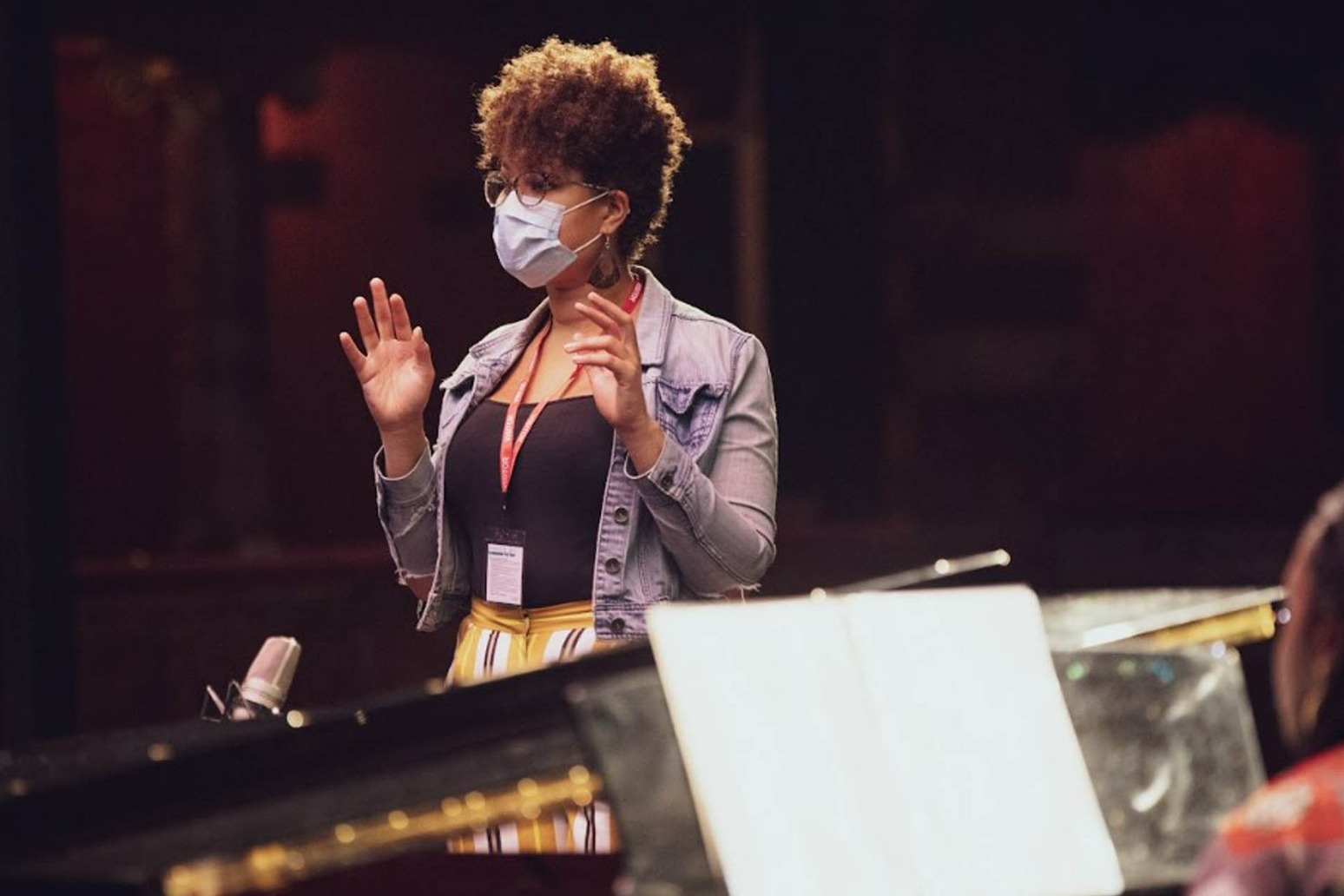
Representation and diversity is where ‘magic’ lies for the future of opera
Two women working to diversify opera in the UK have spoken of the importance of “demystifying” the art and focusing on the storytelling it provides.
Alison Buchanan and Simone Ibbett-Brown told the PA news agency what change needs to be made to make opera a more accessible genre of classical music for people of any race or background as opera houses around the world have celebrated their talent across October for Black History Month.
Ms Buchanan, who grew up in Bedford and is now based in New York, is the only black British female artistic director in the UK.
She holds the role at Pegasus Opera Company, which works to “advocate, agitate, and educate” the industry, advocating and creating opportunities for artists of African and Asian heritage.
“You wait for a seat at the table and you realise you have to create your own table,” Ms Buchanan said of the challenge to diversify opera.
“And that’s part of the work that Pegasus has done, created our own table.
“My contention is if you are sponsored by the Arts Council then the people on stage and in the pit should reflect the communities that you serve, so if you’re in London, look at the demographic in London.”
Ms Buchanan started singing as a young girl and recalled listening to her father’s extensive record collection, including Christa Ludwig’s Brahms Alto Rhapsody: “It must have ignited something in me.”
She auditioned to be part of an all-black cast in an opera at Glyndebourne, a prestigious venue in east Sussex, and at 16 was the youngest ever person to be in the opera house’s chorus.
Ms Buchanan, who then studied at the Curtis Institute of Music and earned herself a place on a programme for young artists at the San Francisco Opera, said she believed the death of George Floyd, a black man murdered by a police officer in Minnesota in May 2020, changed the industry.
“I really do think that things have shifted, if George Floyd knew the influence the sacrifice of his life had made on the world – it was a huge global shift,” she said.
“The doors were always shut and (in the UK) they were always very limited in their thinking about having diversity on stage.
“After George Floyd died, we started having difficult, different dialogues with the opera companies, and they see things differently and optically, at least, they are doing the right thing.”
Ms Buchanan said the impact of Pegasus, a 30-year-old company based in Brixton, London and founded by “vociferous, bullish tenor” Lloyd Newton from whom she took over the role of artistic director, “has been tremendous”.
“It has been tremendous in demystifying opera, making it accessible to people who wouldn’t go to the opera necessarily, and reaching out to communities that opera companies don’t tend to reach out to, in terms of influencing and encouraging and supporting singers and giving them opportunities,” she said.
“I think it just needs to be normalised, that representation… If people come to the opera and they see something they enjoyed, or there were people that look like them, they’re more likely to come again.
“And you want to ignite a passion for the art form.”
Simone Ibbett-Brown, a 30-year-old freelance theatre maker and performer from Essex, echoed the sentiment of Ms Buchanan that representation is crucial for the future of opera.
Ms Ibbett-Brown is directing the first part of an upcoming concert with Glyndebourne set to tour the country across November and December that brings together two 18th-century musical giants: Mozart and Joseph Bologne, Chevalier de Saint-Georges, a black conductor, revolutionary and slavery abolitionist whose music was “erased” by Napoleon during the French Revolution.
“I think there’s so many stories like this throughout history of people who were silenced for their race or their gender or their political affiliations, who have something amazing to offer artistically and historically,” Ms Ibbett-Brown said.
“And (there are people) that can illuminate not just the history of the time, but also I think our experiences today as well, and I think Joseph is absolutely one of them.”
“I’m often asked the question, why do I think it’s important to think about diversifying history and I always ask the question back: ‘Why not?’
“Why would we want to ignore the incredible landscape around us of people’s contributions, and things that may help us move forward as well?”
Ms Ibbett-Brown said it is vital that diversity, from hiring composers to singers, is made a “top priority” in order to reap its rewards.
“Making that a priority far outweighs the discomfort or the trickiness of doing it,” she said.
“Say you’re putting on a show about a South Asian person’s experience of life in the UK… And you hire no British South Asians to work on that project.
“Is it going to be very good?
“Is it going to be very accurate? Is it going to be high quality? The answer is no.
“Ideally, all these projects would be well informed by the source material, by the story you’re trying to tell, and possibly more importantly, if you’re using someone’s story, particularly if it’s a traumatic story, then the credit and the money and the love should go back to the community that birthed that story.
“Why would we tell the same old stories over and over again when there’s so many exciting new ones out there?
“(When) we just ask a few more people, find out a few more things and work with people outside of our experience, that’s where magic can happen.”
Published: by Radio NewsHub